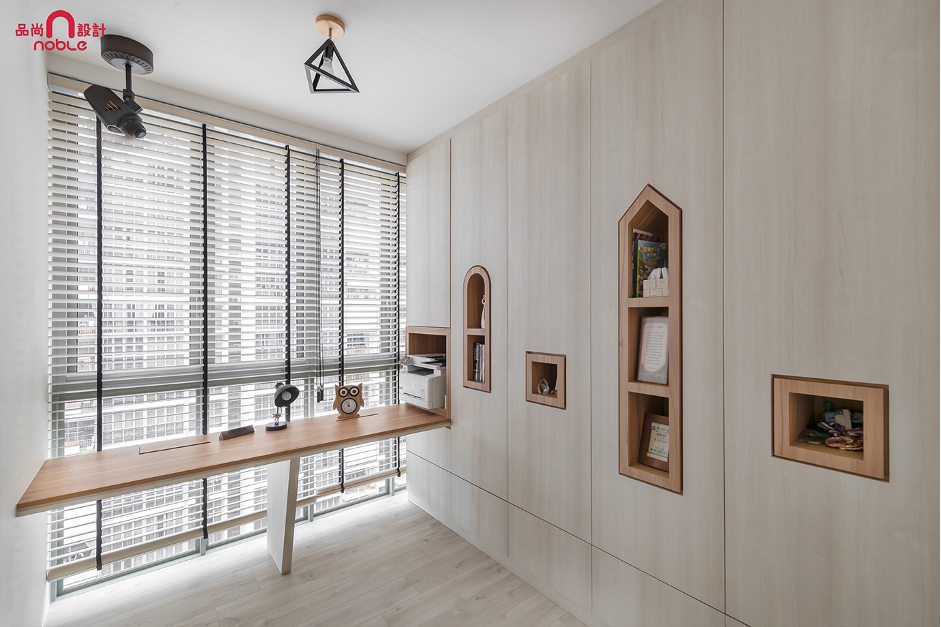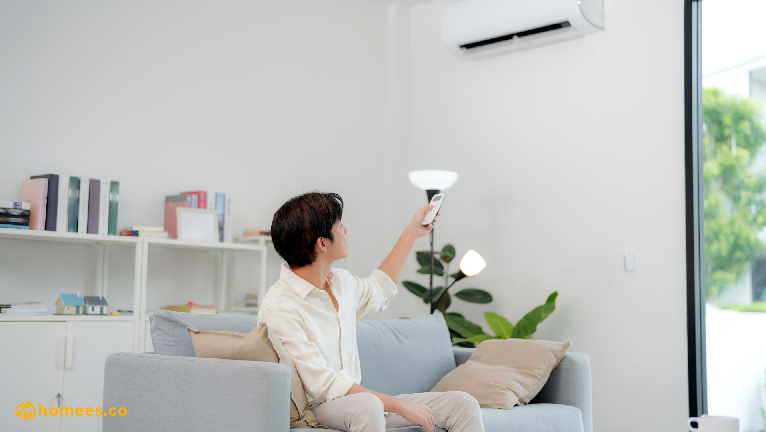Most of us crave a nice, warm shower at the end of the day or in cooling weather. A long day without hot water will make anyone appreciate having instant hot water from a dependable water heater. What type of water heater should I buy? Where to buy a water heater? How do I maintain a water heater? These are common questions Singaporeans ask when it comes to purchasing a functional and long-lasting water heater for their homes.
Choosing the right new water heater for your home depends on your needs — some may want the water to heat up fast, and others may wish for the system to be energy efficient and save their money in the long run.
11 Best Water Heater Installation Companies In Singapore (Our Top Picks)
Companies | Services | Address | Ratings |
Homees Concierge Service | Homees Concierge Service Team - tell us what you need and we'll help get it solved. Talk to us today by giving us a call or Whatsapp us now. | 994 Bendemeer #03-04 Singapore 339943 | Average Rating: 5/5 |
Direct Plumber SG | - Plumbing Chokes & Repair - Plumbing Installation / Replacement & Repair - Plumbing Leaks & Pipe Repair | 3 Duku Ln Singapore 429304 | Average Rating: 5/5 |
RSF Waterproofing & Contractors | - Waterproofing solutions | 39 Woodlands Close, MEGA @ woodlands #04-09 Singapore 737856 | Average Rating: 5/5 |
A1 Handyman | - Tile Grout Cleaning | 1090 Lower Delta Road #03-07L Singapore 169201 | Average Rating: 5/5 |
Mr Plumber SG | - Bathtub Repair | - | Average Rating: 5/5 |
Plumber Meng | - Water Heater Installation | - | Average Rating: 5/5 |
Everyworks | - Water Heater Installation | 1090 Lower Delta Road #03-07A Singapore 169201 | Average Rating: 5/5 |
Duncan of Decor Care Plumbing Services | - Water Heater Installation | - | Average Rating: 5/5 |
SGPlumbing | - Water Heater Installation | 28 Senang Cres, 02-02, Singapore 416601 | Average Rating: 5/5 |
PS Plumber | - Toilet Installation | Blk 884 Tampines ST 83 05-67 Singapore 520884 | Average Rating: 5/5 |
Tom Plumbing | - Water Heater Installation | 10 Buroh Street #08-22, West Connect Singapore 627564 | N/A |
Elmark Marketing | - Ceiling Fan Installation | 3016 UBI Road 1 #03-143 Singapore 408706 | N/A |
Hire Water Heater Installation Services In Singapore
View All Water Heater Installation Companies
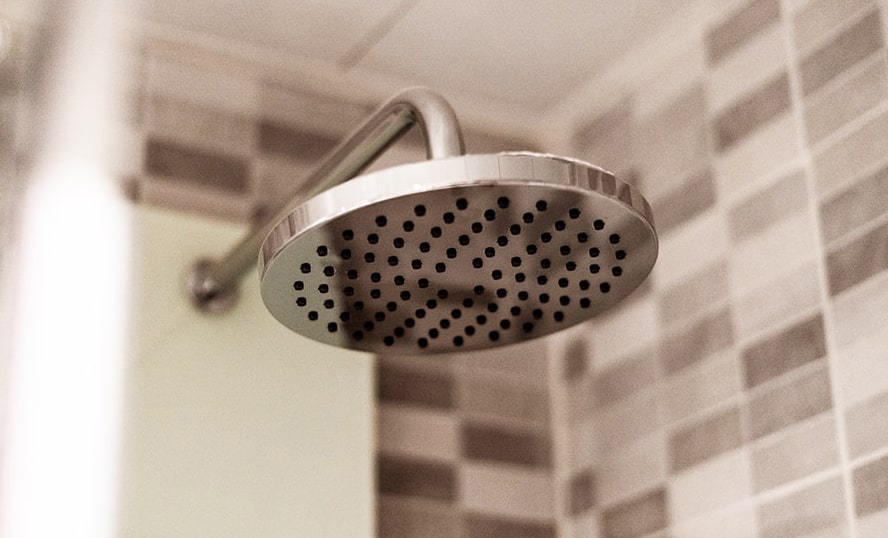
Types of Water Heaters in Singapore
There are two types of water heaters in Singapore – instant water heaters and storage water heaters.
Instant Water Heater
Instant water heaters are common in any Singapore HDB. They heat up your water on demand and do not require a storage tank. Compared to water storage, it saves space and users can enjoy warm water almost immediately. Should you be looking for common plumbing repairs, check out our plumbing costs and estimates in Singapore to make sure you do not pay exorbitant prices for easy jobs.
How it works
When you turn on the switch, water flows through the heat exchanger located in the water heater, heating the water to the right temperature. Since water is not stored in its tank, less energy is needed to maintain the same water temperature throughout the entire day.
Pros: As there is no water storage tank, it can protect precious space, especially for us living in smaller apartments in urban cities like Singapore.
Cons: Since it is mounted on the toilet walls, such heaters may affect the aesthetics of the home.
Gas or electric?
Instant water heaters (or on-demand water / tankless water heaters) can be either electric or gas-powered.
As technology advances, the lines between these two are blurring. The addition of accessories and add-ons for water heaters improves user experience by increasing efficiency and more energy-saving
So what are the differences between gas and electric water heaters?
Electric Tankless Water Heaters | Gas Tankless Water Heaters | |
Maintenance | Annual maintenance not required | Requires annual maintenance |
Venting | Not required and can be installed anywhere | Requires venting as part of the installation process |
Environmental Effects | Lesser indirect greenhouse gas emissions and reduces the carbon footprint in manufacturing and disposal | Can create greenhouse gasses and is reliant on fossil fuels |
Operating Cost | Subject to the cost of electricity | Subject to the cost of natural gas |
Instant water heaters are best used for:
- Households that do not consume water at more than one place at the same time.
- Public bathrooms / remote hot tubs.
- Supporting a solar water heating system.

Storage Water Heater
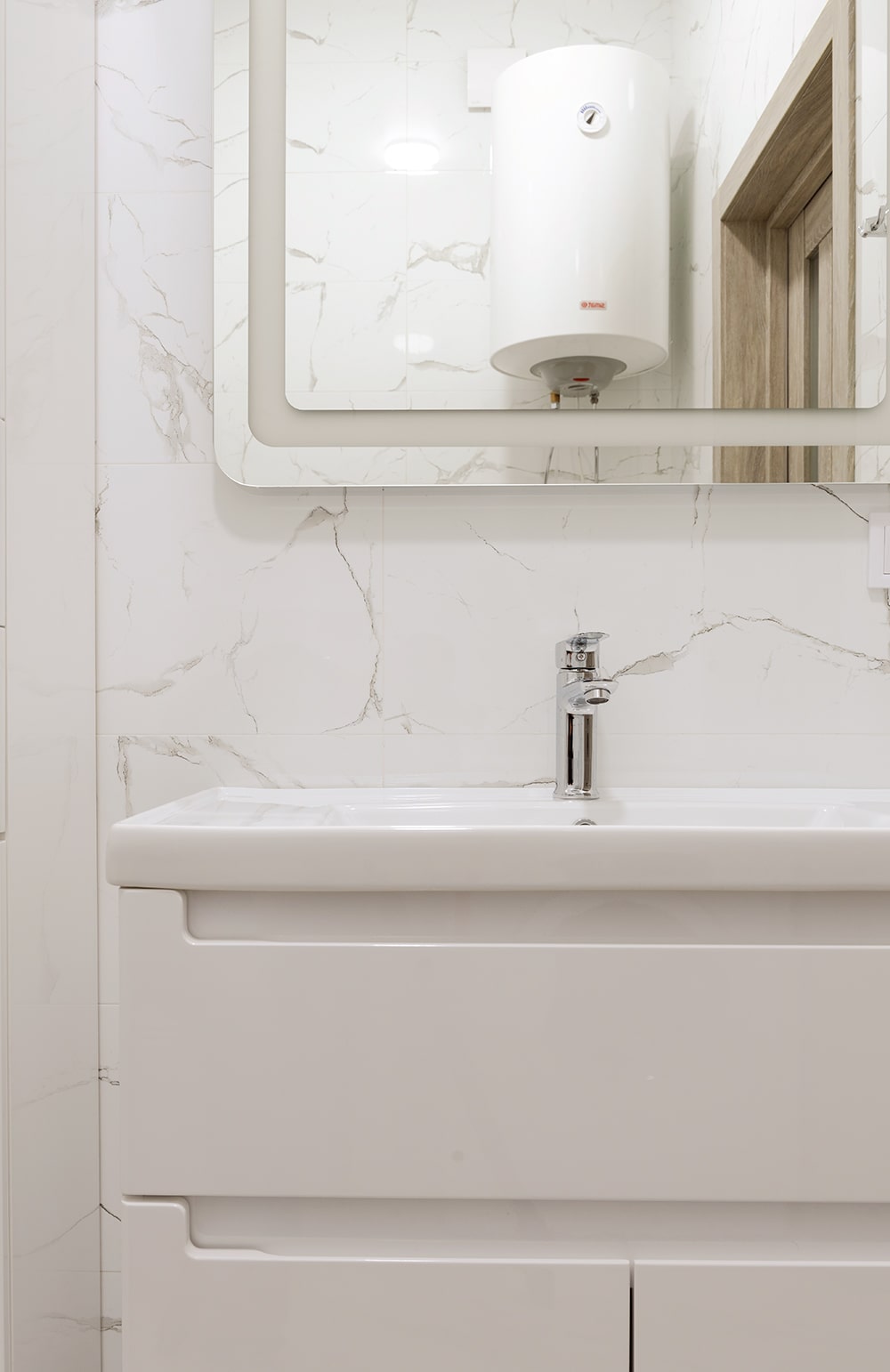
A storage water heater stores a supply of hot water that is ready to be used.
Its tanks usually hold over 100 litres of continuously heated water which will be distributed throughout the house. When switched on, water is heated and stored, then reheated till needed to maintain a constant temperature for the hot water.
How it works:
The storage water heater circulates hot water from the tank’s top while allowing cooler water to flow in from below and heating it, generating a convection current while keeping the tank full.
However, energy will be wasted when not in use since the stored water is continuously heated to maintain its temperature.
Electric, solar, digital or heat pumps?
For storage heaters, there are four main kinds, namely:
- electric- powered
- Solar-powered
- Digital
- Heat pump
For eco-friendly users, heat pumps and solar storage water heaters are the ones they should be looking for.
Water Storage Heaters are best for:
- Places with a number of people using hot water simultaneously at the same time.
- Large residential homes.
- Homes and workplaces that rely heavily on hot water.
Instant Heater & Storage Heater comparison
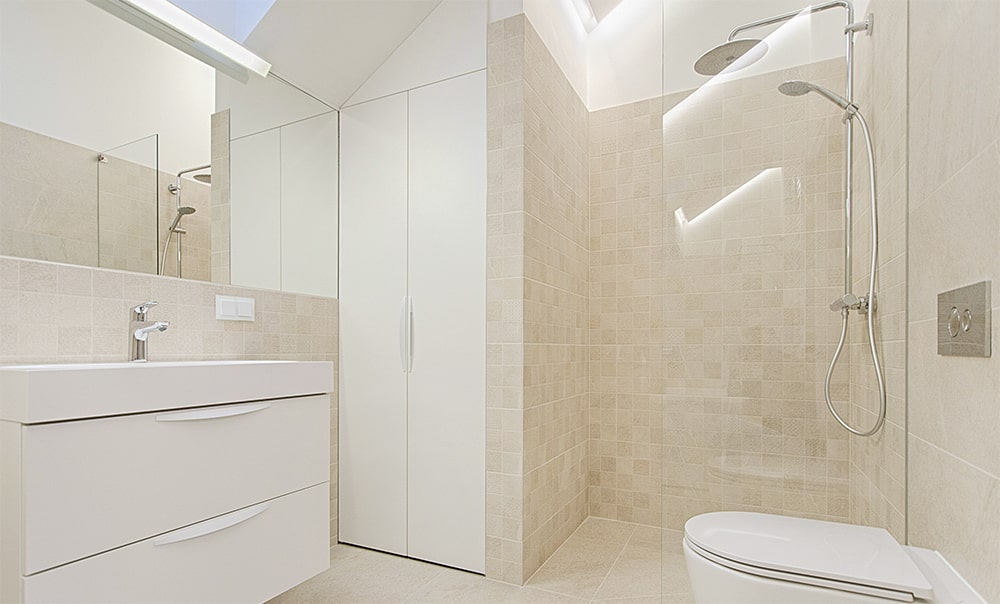
The guide we provide is in no way exhaustive or conclusion but is based on our observation and research of what is in the market.
Below is a comparison between instant and storage water heaters.
Instant Heater | Storage Heater | |
Item Cost | Low | High |
Water capacity | Unlimited, water is heated as and when you need | 15L to 100L, depending on the capacity of the tank |
Design | Small and compact | Bulky and takes up space |
Utility | Low, but dependent on usage | High, need to heat up a whole tank and maintain a constant temperature 24/7. |
Usage | Regular hand showers | Almost any type of shower fixture (e.g. Rain showers, massage jets, and bathtubs.) |
Waiting time | ~5 secs for the water to flow through and heat up | Needs to be preheated before use. The timing depends on tank capacity. A Smaller water heater tank heats up faster than a bigger tank. |
Life Cycle | 10 to 15 years, estimate | 8 to 13 years estimate |
Every heater has its differences, and it is best if you are able to talk to plumbers or water heater professionals for their advice.
Water Heater Type | Instant Water Heater Type | Brands | Average Price Range |
Instant | Electric | $120 - $350 | |
$85 - $300 | |||
$120 - $300 | |||
$180 - $300 | |||
$100 - $200 | |||
$80 - $380 | |||
$150 - $200 | |||
Gas | $640 - $1,000 | ||
$180 - $990 | |||
$350 - $1,800 | |||
$330 - $340 | |||
Storage | $250 - $600 | ||
$150 - $500 | |||
$300 - $350 | |||
$330 - $340 | |||
$230 - $400 | |||
$250 - $700 | |||
$270 - $300 |
1. Types of water heater
There are 2 main types of heaters available- instant heater and storage heater. Instant water heaters heat up water that passes through the heat exchanger of the unit. On the other hand, storage water heaters contain an insulated tank that stores a reservoir of hot water which is preheated. There are pros and cons to using each type of water heater.
2. Cost
The price of a water heater does not influence the decision to purchase. The total cost of using an instant heater tabulates to a lower price compared to the storage heater. The instant water heater consumes energy only when you are using hot water. This helps you to save on electricity. However, an instant water heater has a shorter lifespan and requires more maintenance compared to a storage heater. When your instant water heater breaks down, you can hire a technician to assist you with the repair of your water heater. In addition, there are many different brands in the market with some being more economical than others. It is best to do your research before your purchase!
3. Installation
Instant water heaters tend to be small and compact and only take up a small space while storage heaters take up a large area to hold a large amount of water. However, a storage heater will be able to provide hot water to multiple locations. As a result, instead of installing multiple instant water heaters, it would be ideal if you want hot water in multiple areas of your home, like the kitchen and bathroom. In addition, instant water heaters are much easier to install than storage heaters. Storage heaters, on the other hand, are installed in areas where they are hidden from view, making them the more aesthetically pleasing option.
4. Water pressure and temperature
Bad water pressure and inconsistent temperature can be frustrating especially when you crave a hot, long shower at the end of the day. For instant water heaters, the flow of water into the heating chamber of the instant heater is regulated by an in-built flow restrictor.
This results in lower water pressure. However the amount of water being heated at each time is controlled, and you will get a consistent flow of hot water. Storage heaters, on the other hand, are non-pressure reducing systems. Water can flow at high pressure, about 10 lit/min compared to 4 lit/min for instant heaters. In addition, storage water heaters require a longer time to heat up water.
Choosing between Gas and Electric Water Heaters: What’s Best for You?
Choosing between having a gas water heater and an electric one may be very unsettling especially considering that each has its merits. Some of the most important factors to consider include; installation, cost, efficiency and maintenance. Here is a detailed comparison that will help in your decision making process.
Electric Water Heaters
Pros
- Easy Installation: Electric water heaters are easy to install since they do involve the direct use of gas, which makes it cheaper to install. This is a major advantage for homes that are not plumbed for gas.
- Safety and Reliability: Unlike gas heaters which are said to be dangerous to use indoors, as they are feared to cause gas leakage and carbon monoxide poisoning. Electric heaters are safe to use indoor with 0% chances of producing gas. You will also eliminate the chances of having pilot lights go off, or having concerns about ventilation.
- Lower Upfront Cost: Utility water heaters are cheaper to buy and need less work to install. This can be a big deciding factor for homeowners who may be low on cash.
- Compact Size: Most electric heaters are compact to be placed in small areas because most apartments or homes with limited storage space. Some of the models can be fitted within the closets, utility spaces and additionally they can be in the walls.
Cons
- Higher Operating Costs: In Singapore, electricity costs have been relatively higher than gas; thus, employing electrical water heaters would probably be incredibly costly in the time it unfolds. If you have an issue with constant utility cost, this is something you should take into consideration.
- Slower Heating: Electrical heaters warms water relatively slowly as compared to gas water heaters. The issue with using electric heaters occurs when you need a huge amount of hot water at a time. For example, if there are several people showering in your household one after another, you will consider that such heaters are not very efficient.
- Power Outages Affect Availability: Electrical heaters depend solely on electricity in their usage. In the course of a power breakdown, you will lack hot water until normal power supply is restored which may be unfavorable in an urgent situation.
- Limited Hot Water Supply: Electric water heaters, especially the small ones can hardly be able to meet the demand especially in a family where hot water is exigently used. They might give you less hot water than gas systems if you will be using the shower incessantly.
Gas Water Heaters
Pros
- Lower Long-Term Costs: Though the initial cost of installing a gas water heater is high, it is cheaper to use as compared to an electric water heater. If you are intending to live in a home for a number of years, you may end up saving more of your money in the long term by buying a gas model.
- Faster Heating Times: The most significant benefit that comes with the use of Gas water heaters is that they warm water faster. The high level of burning a gas heater can give hot water in less time than an electric heater. This is suitable for large families and households within the home where there is heavy use of hot water.
- Reliable in Power Outages: Gas water heaters are not reliant on electricity; what that means is that the heater is capable of heating the water and providing hot water at any particular time when there is no electricity. This could really come in handy if there are power outages at night or due to storms.
- High-Efficiency Models Available: Most of the current models of the gas water heaters, especially the current tankless models are with energy efficient mechanisms. These models heat water only when required hence save more energy, this means that your electricity bills will not be a concern.
Cons
- Higher Initial Costs: Making use of a gas water heater also costs more, since it necessitates the presence of a gas line and venting. The biggest drawback of a gas home heating system is that if the home does not possess a gas infrastructure, installation could get very expensive.
- Safety Concerns: A primary problem associated with gas heaters is the leaks that result from the regular use of the device and accumulation of carbon monoxide. It can even result to explosions in some cases where the heater has not been maintained properly. For this reason it is important to have the system inspected often as well as conducting a check up on all your gas connections and ventilation systems.
- More Maintenance Required: Maintenance check of gas water heaters is more often than in the models using electricity. Special emphasis should be placed on the questions connected with cleaning and performing preventive work on the systems, during which the formation of carbon monoxide can be expected. Furthermore, the burner and gas lines should also be inspected for any trace of wear and damage.
- Limited Placement Options: However due to the use of vent and requirement of gas supply, the installation of gas water heaters is limited. This restricts where it can be placed particularly in small houses, where they will be even more limited.
Which of Them Is More Suitable for You?
To decide whether going with a gas or an electric water heater, consider the use of water in your home, your energy consumption, and how long you expect to live in the house. Portable heaters utilizing gas may be more suitable when used by large households or where water is used frequently. However, if safety, easy installation and the initial costs are what you consider most important, then the electric type will be most ideal.
If you are still undecided you may wish to seek advice from an electrician to discuss your homes energy requirements before making the final decision.
Water Heater Buying Guide
When selecting the most suitable water heater, it will be helpful to consider these factors below:
- Water Pressure: When compared to storage tanks, instant heaters have limited outflow and so cannot meet high usage needs.
- Consistent hot water: Based on the table above, instant water heaters cannot deliver hot water consistently due to factors like flow rate
- Compatibility: which type of water heater is suitable for your shower system?
- Maintenance: You’ll need to check for the heater’s maintenance requirements and fees in the long run
- Initial cost: The price you buy your heater at
- Running cost: the cost of providing the hot water consistently.
- Aesthetics: Instant water heaters might affect your overall bathroom aesthetics as they are not hidden
- Position of water heater: Traditional storage water heaters are located at the service yard or bathroom ceiling. New HDB BTO flats have a designated place for storage water heaters.
Instant electric water heaters will be located beside shower fixtures while gas water heaters are located at the service yard, balcony or Aircon ledge as ventilation is required. - Family Size: Depending on the size of your household, the size of your storage water heater varies.
Household Size | Storage water heater tank size |
1-2 people | 15-40 Litres |
3-4 people | 40-80 Litres |
5 and more people | 80+ Litres |
Accessories for Water Heaters
Water heaters are becoming more efficient and easier to control. We have highlighted a few accessories which can be used to boost the efficiency of your water heater further and bring you more cost savings.
- Water alarms. Usually placed beside the heating unit, the alarm will sound if it detects that there is a leaking problem or too much water in the system.
- Pressure regulators. Regulators are used to preventing excessive water outflow that can lead to a spike in water pressure and cause leakages. Regulators can be attached to the outlets on a heating unit.
- Expansion tanks. Designed to hold additional water supplies while the primary tank heats up cold water. They’re linked to water heaters.
- Insulating blankets. These blankets are developed to go over a water heater. They will increase insulation and reduce heat loss, allowing lesser energy loss due to heat loss.
- Timers. Timers are connected to the power supply of water heater devices, enabling you to save energy and reduce heating expenses by deferring the process until it is required.
- Water heater pans. It is designed to catch the water that leaks from the heat tank. These pans are installed beneath the units and linked to drain hoses.
Some accessories can be bought online while others are sold exclusively by water heater companies. Check with your professional if you’re looking to purchase these accessories.
Accessories available online:
- Water Alarm / Water Leak Detector: $6-$60
- Pressure Regulator: $3 – $30
Signs of a Troubled Water Heater
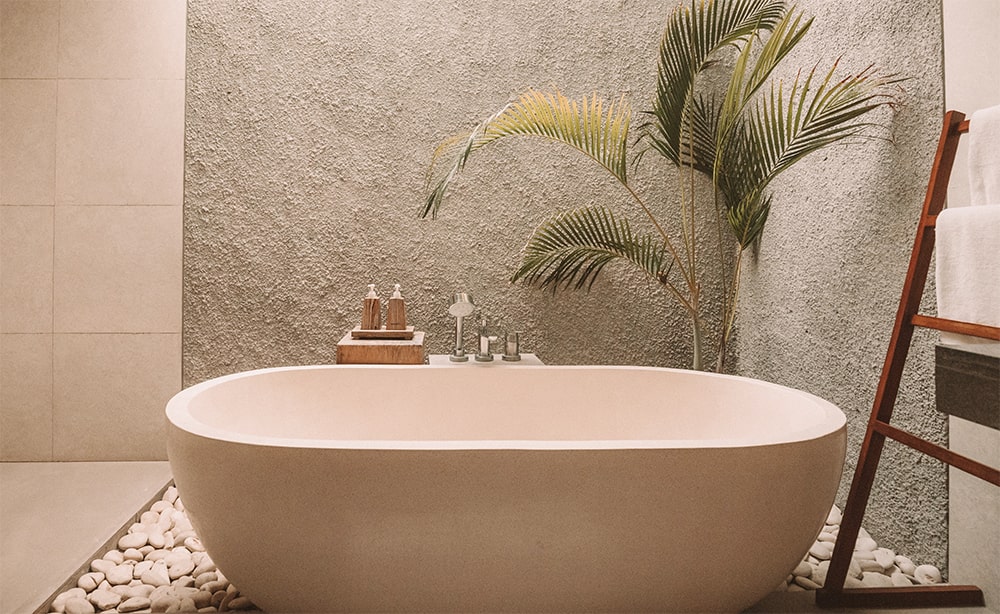
As water heaters are used frequently, problems will still occur despite having regular maintenance.
We highlight some signs of a faulty water heater:
- A sudden surge in utility bills: If your heater is operating harder than usual to accomplish its basic operations, there could be leaks or inefficiencies in the system.
- Leaks and rust. To get the most out of your water heater, hire a skilled plumber and have it inspected on a regular basis for symptoms of wear and suffering. If you notice water seeping onto the floor or corroding the heater, it is likely that the heater has to be repaired.
- Contaminated or dirty water. If you detect brown water streaming out (evidence of rust) or your tap water becoming rancid, it could be due to water heater issues
- Unusual sound from the heater. If you hear popping or cracking sounds emanating from your heater, the heating components may be under stress.
Maintenance of Water Heater
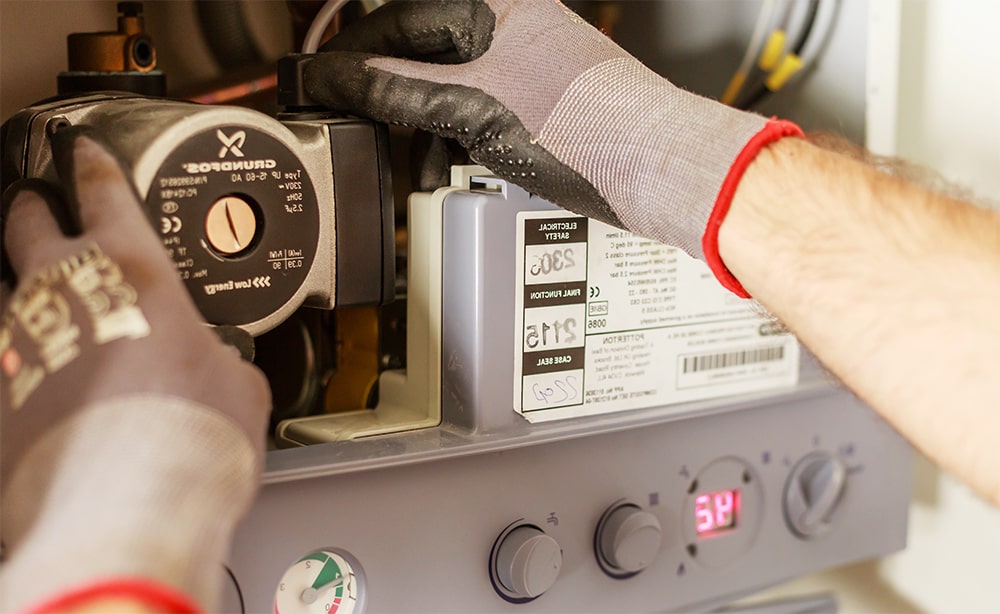
Instant water heaters have a life expectancy of five to seven years while storage water heaters last at least a decade.
Check out the guide below if you’re looking to increase your tank expectancy, reduce energy expenses, or minimize water leakage damages.
-
Placement of water heaters
It is critically important to know where your water heater is located. Having clear access to it saves time, especially in case of emergency or any plumbing needs.
-
Determine water heater type
You should be aware of important details regarding your water heater (e.g. instant or storage water heater, electric or gas heater). Furthermore, take note of the product number and serial code of your water heater as its capacity and date of purchase is coded in it.
It saves time and is necessary for warranty purposes the next time you hire a plumber or set up plumbing maintenance.
-
Make sure the area surrounding your water heater is clear
There are several causes for this:
- A gas-fired machine requires an adequate supply of oxygen for combustion. Inadequate oxygen in the air can reduce the effectiveness of the combustion process and result in carbon monoxide leaks.
- If the unit begins to leak, you may not notice it quickly if the location is hidden from view. This could result in more serious water damage and even energy waste since the water heater has to reheat the water more frequently.
- Having anything surrounding the heater is a fire threat.
-
Draining and flushing your water heater
Depending on the heater you are using, you may want to drain it regularly (at least once a year). Be aware of the hot water flowing out, which may cause damage to properties around it.
A full flush is necessary if you observe a significant amount of sediment or debris. You have to lower the temperature and drain the tank. The water is then turned back on while the drain is open. Water is allowed to flow for a minute or so to help remove any remaining sediment or debris.
After the tank has been replenished, return the thermostat to the appropriate setting.
As this may pose a danger to users, it is wise to engage a professional plumber to complete the task for you.
-
Yearly inspection of your water heater
Our recommendation is to start engaging in a regular inspection by a professional. Professionals can observe tell-tale signs of a malfunctioning heater. In the long run, you may even save more money due to the prolonged lifespan of the heater.
If you have a gas heater and notice black residue, soot, or burned metal, this is a warning that you may be experiencing combustion troubles and should have the unit serviced by a professional. Turn off the gas supply and call a professional if you smell gas.
For electric water heaters, look for rust stains or residue around the top and bottom panels that enclose the tank’s electrical parts.
It is advisable to clean the tank of your storage water heater every five years. The wiring of instant water heaters should be inspected every three to five years.
-
Valves that regulate pressure
High water pressure can impact the system, pipes, and appliances, as well as cause the water heater to malfunction. A pressure regulating valve controls the flow of water throughout the plumbing system and should be fitted by a trained plumber.
-
Water softeners
Water softeners help to remove the residue from hard water deposits which could harm the system. Get your water tested, and consider a softener system to avoid corrosion on the inside of your water heater.
Problems that can Arise with Different Water Heaters
Instant water heater
1. No hot water
When your heater does not supply heated water, it could be due to several factors. One possible factor is faulty parts within the heater that delays the supply of heated water. You should hire a professional to diagnose the problem and have the faulty parts replaced.
2. Leaking water
Leaking water at the base of your water heater could be due to different reasons. It could be due to excess pressure, overheating or even corrosion. Hire a professional to fix the respective issues.
3. Noises
If there are weird noises when you use your heater, this could be due to substances accumulating on the heating element.
4. Discoloured water
When you see an unusual colour of water, this possibly indicates a rusty or faulty heater anode rod that needs to be replaced.
Storage water heater
1. No hot water
When you find that it is taking a ridiculously long time to get hot water out of your tap, it could be that there are built up sediments collected at the bottom of your tank which restricts the flow of water. This results in a longer time needed to fill the tank up and hence a longer time needed to heat up the water. One solution is to flush water out of your storage water heater as the sediments will be flushed out at the same time. When you do not get hot water completely, it is possibly due to an electric fault or a malfunctioned heating element. In this scenario, you will need to get a replacement.
2. Noises
Hearing weird rumbling noises coming from your heater is not normal. It is important to first pinpoint the exact source of the noise. If the noise is coming from your pipe, it could be attributed to built up sediments in the storage tank. Other possible causes might be due to high pressure or the expansion and contraction of pipes which should be looked into by a professional.
3. Discoloured water
This is a sign for you to get your heater tank checked. Less serious causes such as sediment built up can be resolved by doing tank flushing. More serious causes such as rusty pipes will have to be replaced.
4. Low water pressure
A low water pressure could be due to a small piping that hinders the water supply, limiting the output pressure. Alternatively, it could be caused by built up sediments within the pipes that will need to be flushed out.
5. Leaking water
Leaking water could be normal depending on the cause of it. As such, it is important to assess the leakage carefully. Leakage from either the top or bottom of the storage water heater is possibly due to normal condensation when your heater relives pressure and temperature. However, if you notice puddles of water, it could be a sign that a part of your tank has cracked. You should approach a professional to replace it immediately.
6. Smelly water
In most cases, smelly water occurs due to growth of bacteria within the storage tank in the water heater. The storage tank will have to be flushed out and chemically treated. If this doesn’t work, it could indicate a more serious issue and you should call your plumber for help.
In conclusion, many problems can arise when it comes to your water heater. Water heaters need regular maintenance to function properly. In times of need, when the problem is unsolvable on your own, contact an expert from our consolidated list for help.
What are the warranties for water heater installation?
In Singapore, the warranties for water heater installation can vary depending on the brand and installer. Typically, such a warranty includes parts and labour ranging from one to five years. In some cases, brands present a warranty for the tank and heating element, with a leaking warranty of up to five years. That’s why it’s crucial to check the contract the manufacturer or installer provided before purchasing a water heater. That way, you’ll verify the coverage provided and ensure the installation meets the PUB standards and specifications.
How to maximise my cost-savings when buying a water heater?
Installing a water heater in your home is a must-have but expensive purchase. Still, there are many ways to reduce your costs without compromising quality. Here are several tips to maximise your cost-savings when buying a water heater:
- Choose the right type: There are several different kinds of products on the market, including heat pumps, instant water heaters, and storage tank heaters. Instant alternatives are usually the most economical choice because they only heat water when necessary.
- Consider energy efficiency ratings: Consider purchasing a higher energy efficiency rating water heater, like one with the National Environment Agency’s Energy Label (NEA). As a result, your electricity costs will be less expensive.
- Size matters: Choose a product that is suitable in size for your household’s requirements. Although a larger water heater may seem like a good idea, the energy necessary to heat the water will be higher, leading to increased electricity costs.
- Compare prices: Do your homework and compare pricing between brands and merchants. While looking for potential sales and discounts, be cautious about hidden fees.
- Maintenance: With proper maintenance, your water heater can live longer and experience fewer malfunctions, saving you money over time.
What questions should I ask when buying a water heater?
Purchasing a water heater might seem like a small addition to your home. Still, it’s an integral part of your bathroom and kitchen. That’s why asking the right questions is essential to choosing the most suitable model. Here are some must-have questions to ask:
- What type of water heater is best for my home?
- Do you provide a warranty period?
- What is the energy efficiency rating?
- What is the product’s capacity?
- How much will the installation cost?
- Are there hidden costs that you will charge?
- How do I maintain your product?
Can I DIY install a water heater in Singapore?
Yes, you can DIY install a water heater in your home. However, doing so isn’t recommended because incorrect installations can be dangerous. Moreover, water heaters must adhere to technical requirements, safety, water quality, and water conservation guidelines by the PUB. In this regard, hiring a professional to install your water heater will ensure proper and safe installation.
Cost of Other Home Improvement Areas
You can check out the cost of hiring professionals for other aspects of your home improvement project. Some of the general cost guides can be found below:
- Electrician Cost Guide
- Handyman Cost Guide
- Plumbing Cost Guide
- Interior Design Cost Guide
- Kitchen Interior Design Cost Guide
FAQs Related to Water heaters in Singapore
What are tankless water heaters and should anyone get them?
Tankless water heaters are designed to heat water on the spot, activating only once you require hot water. This can lead to huge energy saving because there is no need to heat water the entire day. Although they may be more expensive to purchase initially, they can be more durable and energy efficient than others. Hence if you’re looking to hire a water heater companies in Singapore, you should consider tankless options, especially if your house frequently uses hot water.
How can a reduction in my overall bills be achieved by using a water heater?
A higher rated energy efficient water heater is even more economical in terms of its use of water and can reduce your bills to between 20 and 30 percent. Tankless gas models therefore provide the greatest potential for saving since they only heat water as it is required. Choosing the best water heater companies in Singapore guarantees you quality installation for your appliances and advice on the best energy-efficient products.
Is it feasible for a household to own an instant water heater and a storage water heater at any time?
Yes, some homes use the instant and the storage water heater at the same time in order to provide the people in their homes with hot water. For instance, an instant heater can be installed in a bathroom to serve shower purposes and irrigation while a bulk storage heater would be installed for the remainder of the house, maybe in the kitchen and the laundry.
What should I do if my water heater constantly trips the circuit breaker?
Electric water heaters may not function properly or result in tripping the circuit breaker when the water heater is used frequently. The wiring may also be damaged or the circuit could be overloaded. It is wise to switch off the heater and call a technician, one of the best water heater companies in for professional help. This is to prevent it from being worse or posing more harm and destruction.
We’re here to improve your home
Speak to hundreds of reliable pros, view their gallery, inspirations, and know the best prices with our resources.
Have full control over your home improvement projects with Homees.

